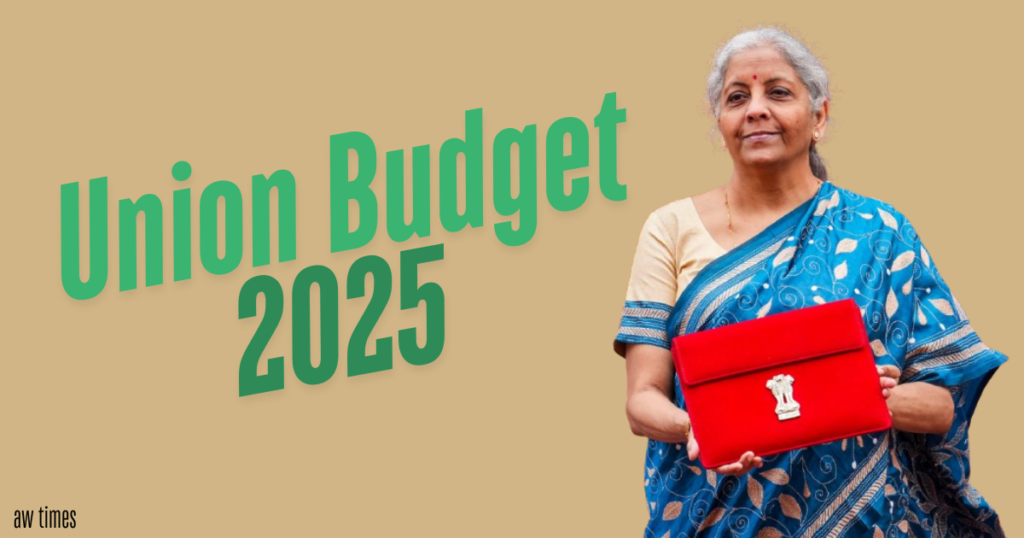Budget 2025: The Union Budget 2025, presented by the Government of India, is a significant document that sets the economic course for the nation in the coming fiscal year. As the country emerges from the pandemic’s lingering effects, the budget holds the potential to reshape India’s growth trajectory, promote sustainable development, and address critical social issues. From taxation reforms to investment in infrastructure and welfare, the Union Budget 2025 aims to create a future that is more inclusive, resilient, and progressive.
Table of Contents

1. Fostering Economic Growth with Structural Reforms
India’s economy has shown remarkable resilience, and the Union Budget 2025 emphasizes the need for robust growth strategies. A central theme in the budget is the focus on structural reforms that aim to boost both domestic and foreign investment. The government has allocated significant funds for digital infrastructure, including smart cities and nationwide 5G rollout, alongside support for MSMEs (Micro, Small, and Medium Enterprises), which are the backbone of the Indian economy.
Key provisions include tax incentives for startups, a simplified tax regime for small businesses, and improved access to capital. The government’s efforts to enhance ease of doing business are expected to make India a more attractive investment destination, boosting both domestic and international confidence in the Indian market.
2. Green Energy and Sustainable Development
One of the standout features of Budget 2025 is the emphasis on green energy and sustainable development. As the world continues to grapple with climate change, India is positioning itself as a leader in the global push towards renewable energy. The budget includes a substantial increase in funds for solar power projects, electric vehicles (EVs), and the development of clean energy technologies.
In addition to a push for green infrastructure, the government has proposed a carbon tax on industries with high emissions, which would not only encourage companies to adopt sustainable practices but also help fund environmental protection programs. By integrating sustainability into the nation’s economic policies, India aims to balance growth with environmental responsibility.
3. Focus on Education and Skill Development
Education has always been a priority for India’s long-term growth, and Budget 2025 doesn’t fall short in this regard. The government has proposed an allocation of funds to modernize educational institutions, enhance research and development (R&D) facilities, and introduce skill development programs tailored to the needs of the evolving job market.
The push for vocational training and digital literacy aims to equip the youth with the skills required in emerging sectors such as artificial intelligence, robotics, and cybersecurity. By investing in human capital, the government hopes to create a workforce that is ready to compete on the global stage and drive future economic growth.
4. Boosting Agriculture and Rural Development
Agriculture continues to be the primary livelihood for millions of Indians, and Union Budget 2025 pays close attention to the sector’s challenges. The government has announced a series of measures to improve farmers’ incomes, including higher subsidies for agri-tech innovations, irrigation systems, and crop insurance. The inclusion of organic farming initiatives is also notable, aimed at promoting sustainable agriculture practices that are both profitable and eco-friendly.
Additionally, the government has focused on improving rural infrastructure through better connectivity, electricity access, and rural healthcare. These investments are expected to bridge the urban-rural divide and provide rural communities with the tools they need to thrive in a modern economy.
5. Healthcare for All: A Robust System for the Future
The Union Budget 2025 also emphasizes healthcare as a fundamental pillar of national development. With the pandemic highlighting the need for robust health infrastructure, the government has proposed a significant increase in health spending. New healthcare initiatives focus on improving public health systems, rural healthcare, and mental health services.
The launch of a universal health insurance scheme for low-income groups, as well as a substantial increase in funds for the National Health Mission, aims to make healthcare accessible to all citizens, regardless of their socio-economic status.
6. Social Welfare and Inclusivity
Another key focus of the Union Budget 2025 is social welfare and inclusivity. Special provisions have been made for women’s empowerment, financial inclusion, and social security schemes. The government has introduced schemes that provide interest-free loans for women entrepreneurs and incentives for the disabled to lead more independent lives.
Moreover, the budget increases the funding for social safety nets such as PMSBY (Pradhan Mantri Suraksha Bima Yojana) and PMJJBY (Pradhan Mantri Jeevan Jyoti Bima Yojana), aiming to provide economic support to vulnerable sections of society.